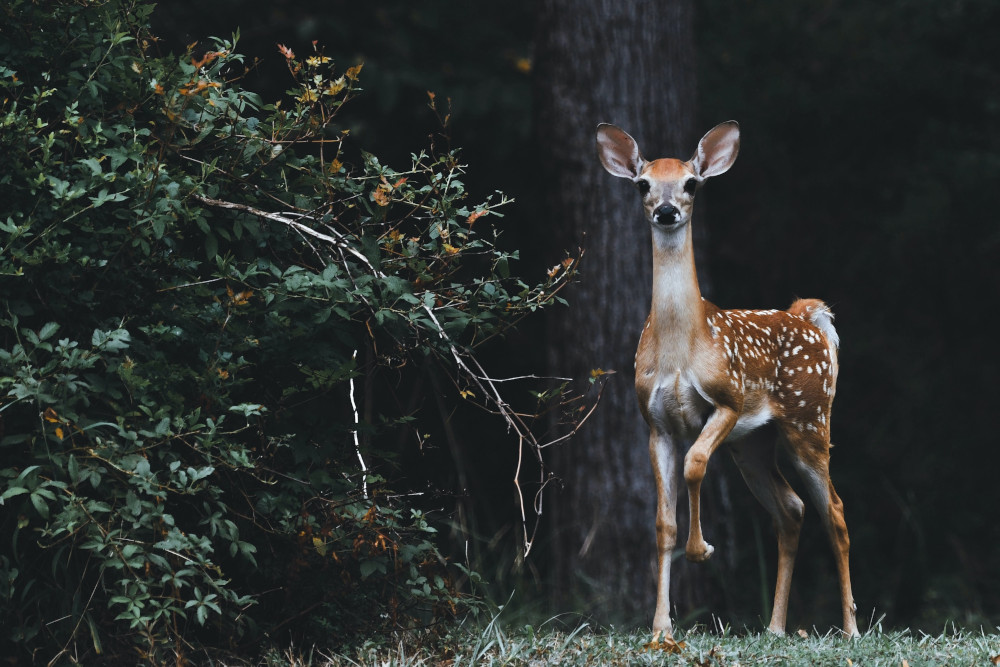
(Unsplash/Scott Carroll)
Recently, my husband Jerry got up to get a drink of water in the middle of the night. He noticed that he was stumbling and felt like he could fall. Looking into the mirror, he couldn't see the right side of his face — it was like it had just disappeared. He tried blinking, shaking his head, but nothing worked. Feeling confused, he thought it was just a quirk. It did not occur to him to be alarmed. However, in the morning, I found him sitting in his recliner in a dazed state, saying he had a tough night and couldn't remember the names of our grandchildren.
He ended up going to the emergency room where he was told he'd had a stroke (transient ischemic attack) and that he had a fully blocked vertebral artery and a 90% carotid blocked artery in his neck. A stent was put in and another will go in soon. Thus began our journey into a swirl of experiences and insights that looking back, seem like a blur.
We didn't know the path of Jerry's recovery, and I found myself feeling uptight when I went to bed, during the night and when I woke up for over a month. Psalm 42:8, which says "at night his song is with me" was a hope I held onto for God's companionship. I had to "wait patiently for" consolation through letting go of fretting (Psalm 37:7). It was not easy. Jerry had short-term memory loss. He got mixed up on details — such as the time he said his temperature had been 200 degrees in the hospital! I burst out laughing, and we still chuckle about it as we poignantly recall the first relief of humor after many scary days.
The previous year leading up to the stroke had been a tough one, with changes at Jerry's work, semi-retiring and arranging our wills and directives. After the stroke, he faced diminishment of job, identity, health and memory. We began wondering about the spirituality of diminishment, which became our theme.
Advertisement
Jerry talked about what it meant to go from being a "do-er" to just being present. While he had been a mechanical/technical foreman for many years working as a troubleshooter, now he was identifying as a "floater," meaning he helped out wherever he was needed on a part-time basis. I loved that word: "floater." It reminded me of the time, after we lost our son over 20 years ago, that I worked with a life coach and received my spirit name, "Lily," meaning a lily pad flower that floats with life's grief and troubles. Indeed, to learn to float psychologically with the waves of challenges and troubles we face is one of life's greatest gifts.
It was a long winter here in Minnesota, with historic snowfalls. We couldn't keep up with snow management; our house got practically buried and I said only half-jokingly, "We lost the battle in shoveling." We would watch the small, friendly herd of deer in our backyard as they made paths to the sanctuary where Jerry feeds them, and even they seemed jumpy and worn out by the blizzards. They had to forge new paths day after day, over and over, looking for food and trudging through the snow so deep it was up to their bellies. It reminded us of Isaiah 42:16, "by paths they have not known, I will guide you." We felt for the deer and could relate to the hardship of the landscape that we were going through internally.
It felt like spring would never come.
I thought about the new flow of blood coursing through Jerry's arteries from the stents; we both longed for a similar flow of optimism, faith and better days. Whether it be blood or hope, we all get blocked sometimes. We need safe places to be authentic about how we feel, to be patient, to hang on, to trust that we are not alone.
Whether it be blood or hope, we all get blocked sometimes. We need safe places to be authentic about how we feel, to be patient, to hang on, to trust that we are not alone.
This was brought home to us in a big way when we read the phenomenal book, The Boy, the Mole, the Fox and the Horse by Charlie Mackesy. The drawings and simple messages spoke poignantly to me, such as when the mole tells the boy that we don't have to be extraordinary to be loved. This has always been one of my deepest convictions: that we are OK as we are, that it is sacred to be ordinary and that we should look through the eyes of the soul when we are going through a season of diminishment.
It's all about waiting for the melting season. The spring thaw did eventually arrive, like a miracle, but it came late. The deer stood at their fence in a lazy way, staring at our house and waiting for us to toss them bread. We saw our first robin. Jerry took my hand and led me around the side of the house where box elder bugs gathered on the siding warmed by the sun.
To see the sun — how spectacular — and to feel it on our shoulders, to see new life emerging and the lakes shimmering with melted water on top of ice and snow. This happens in the heart; this is real. We can expect it, rejoice in it and be transformed by it. We may experience diminishment in many ways, but the spirit never diminishes. Our souls always speak the language of encouragement to us; God always cheers us on. Gratitude expands beyond measure. Spring is always.







